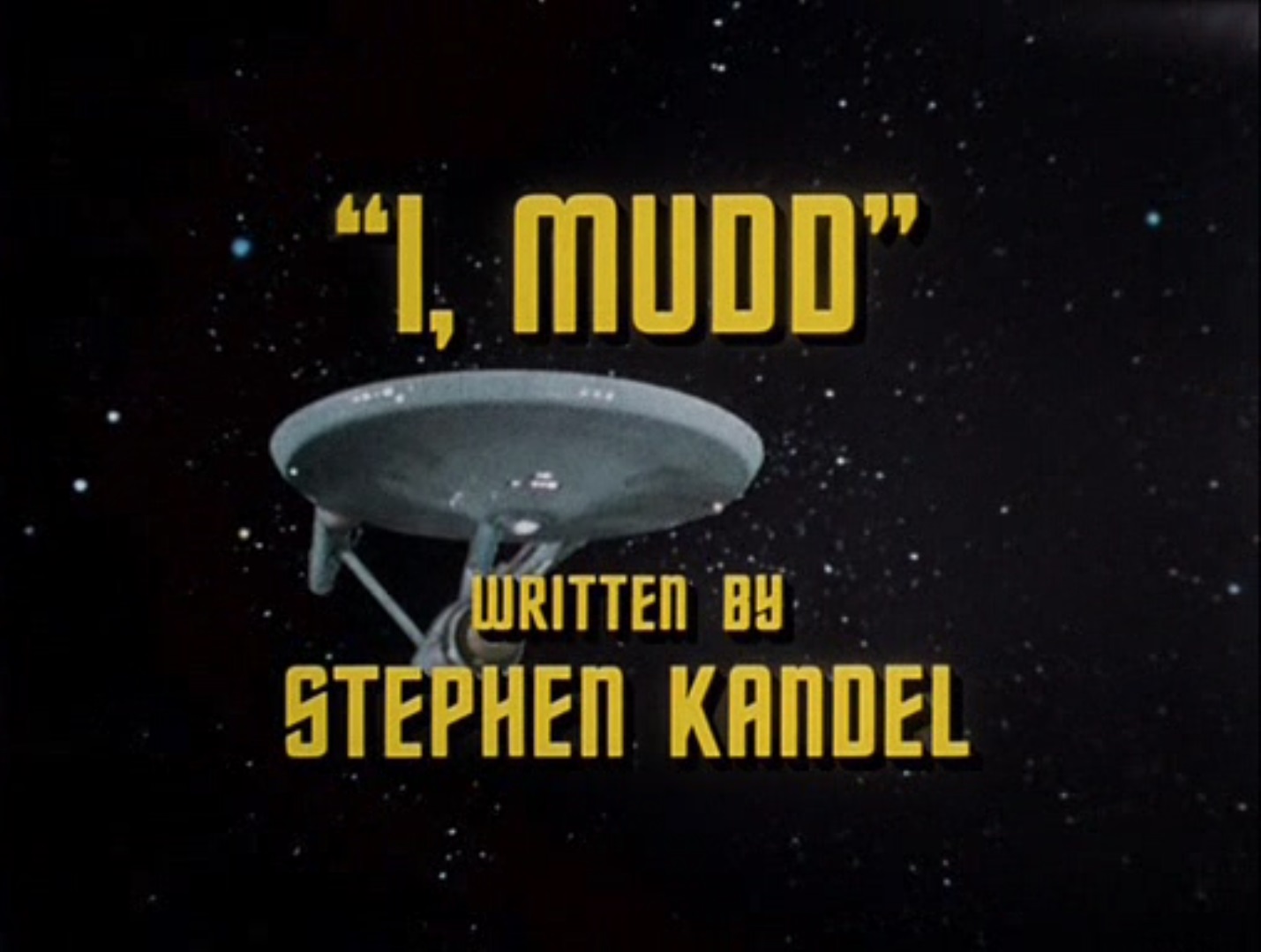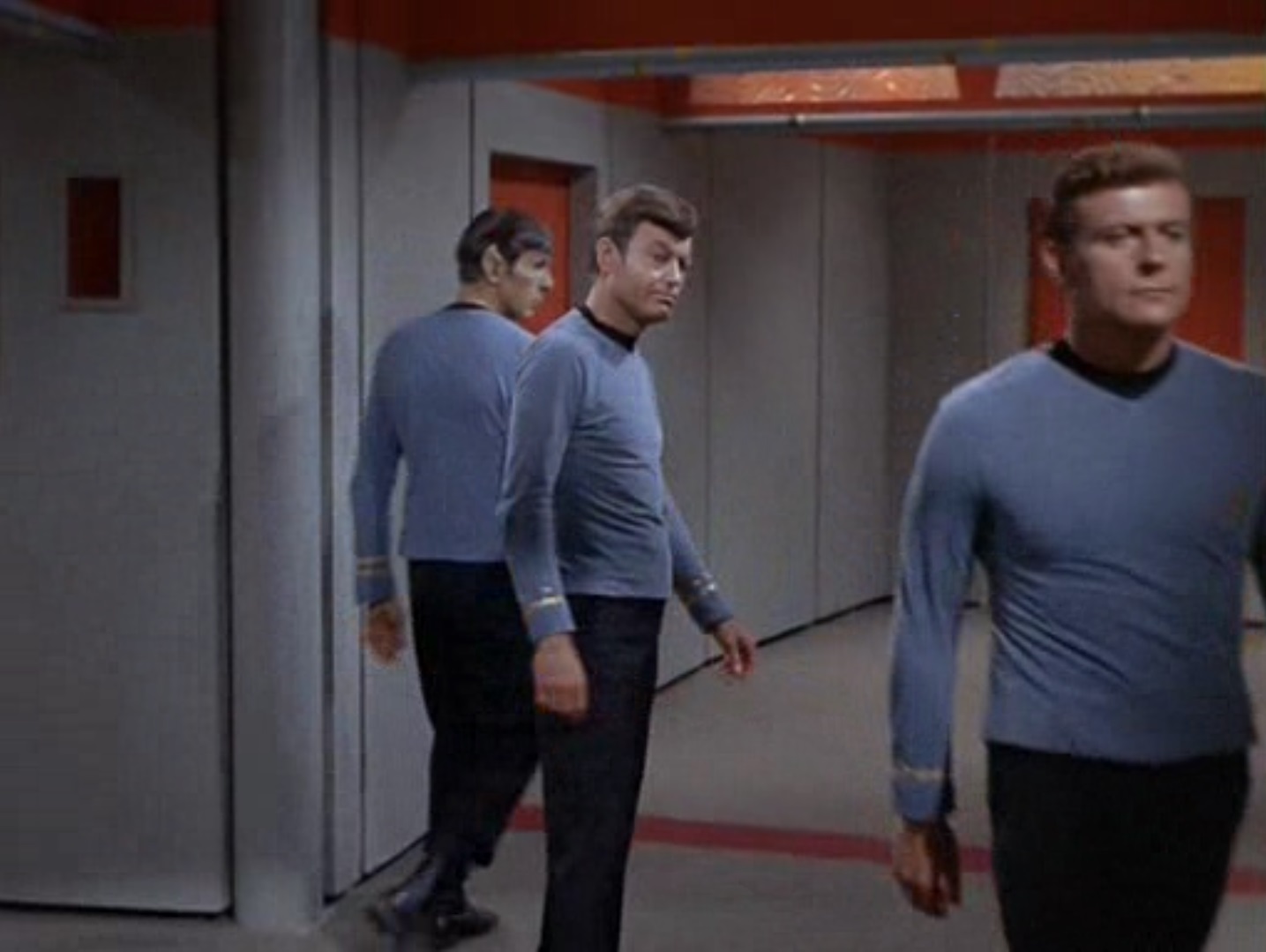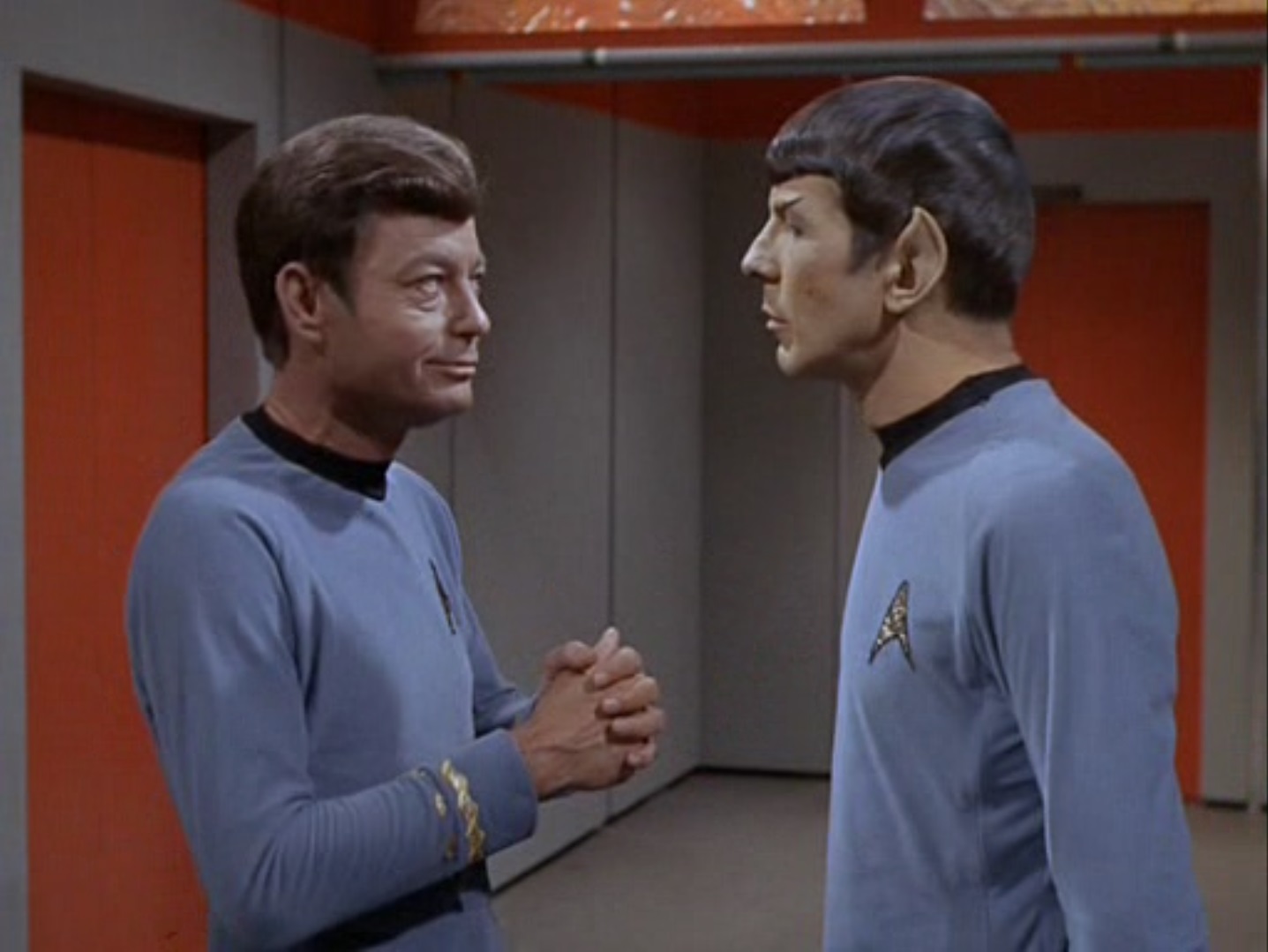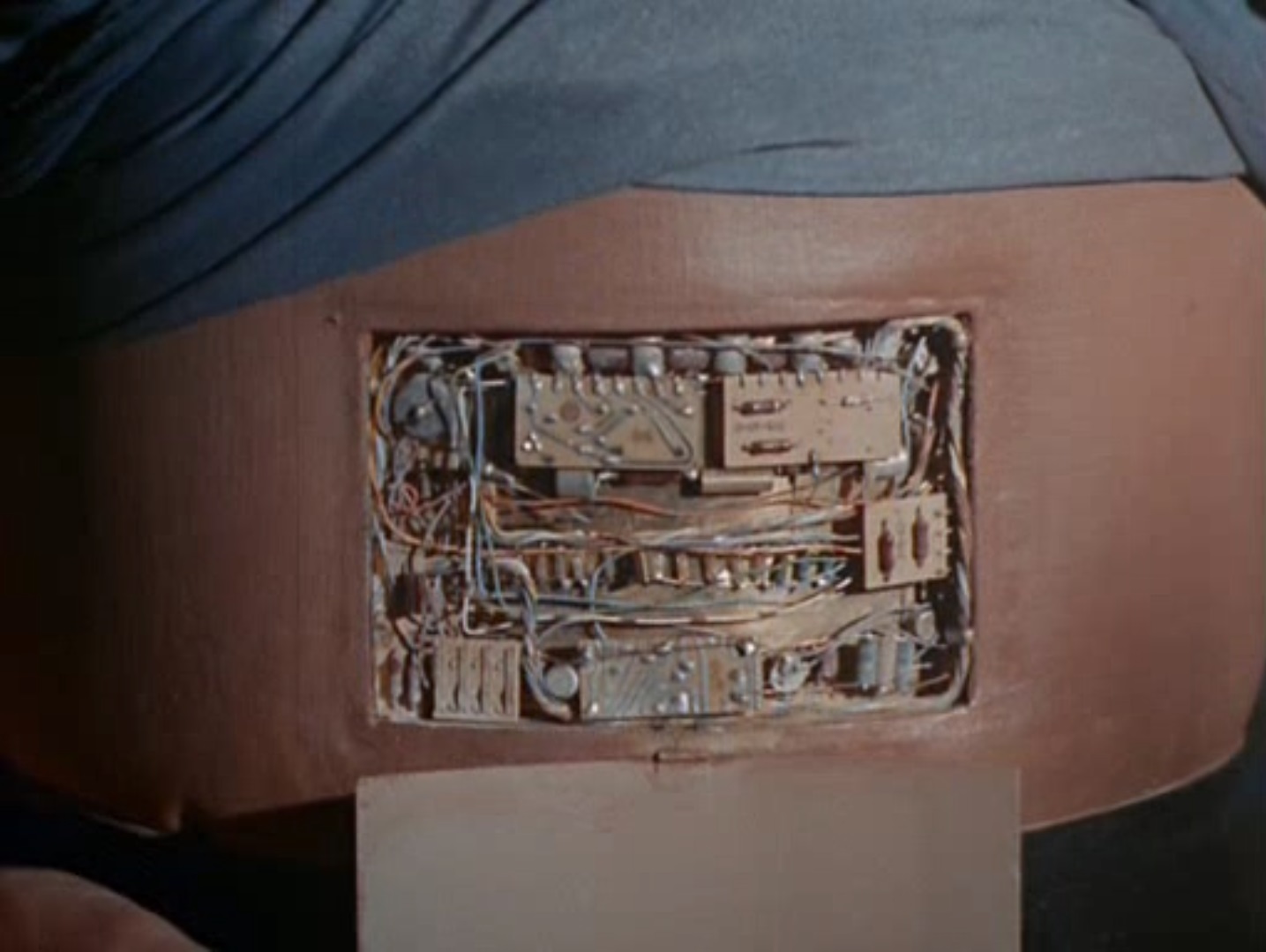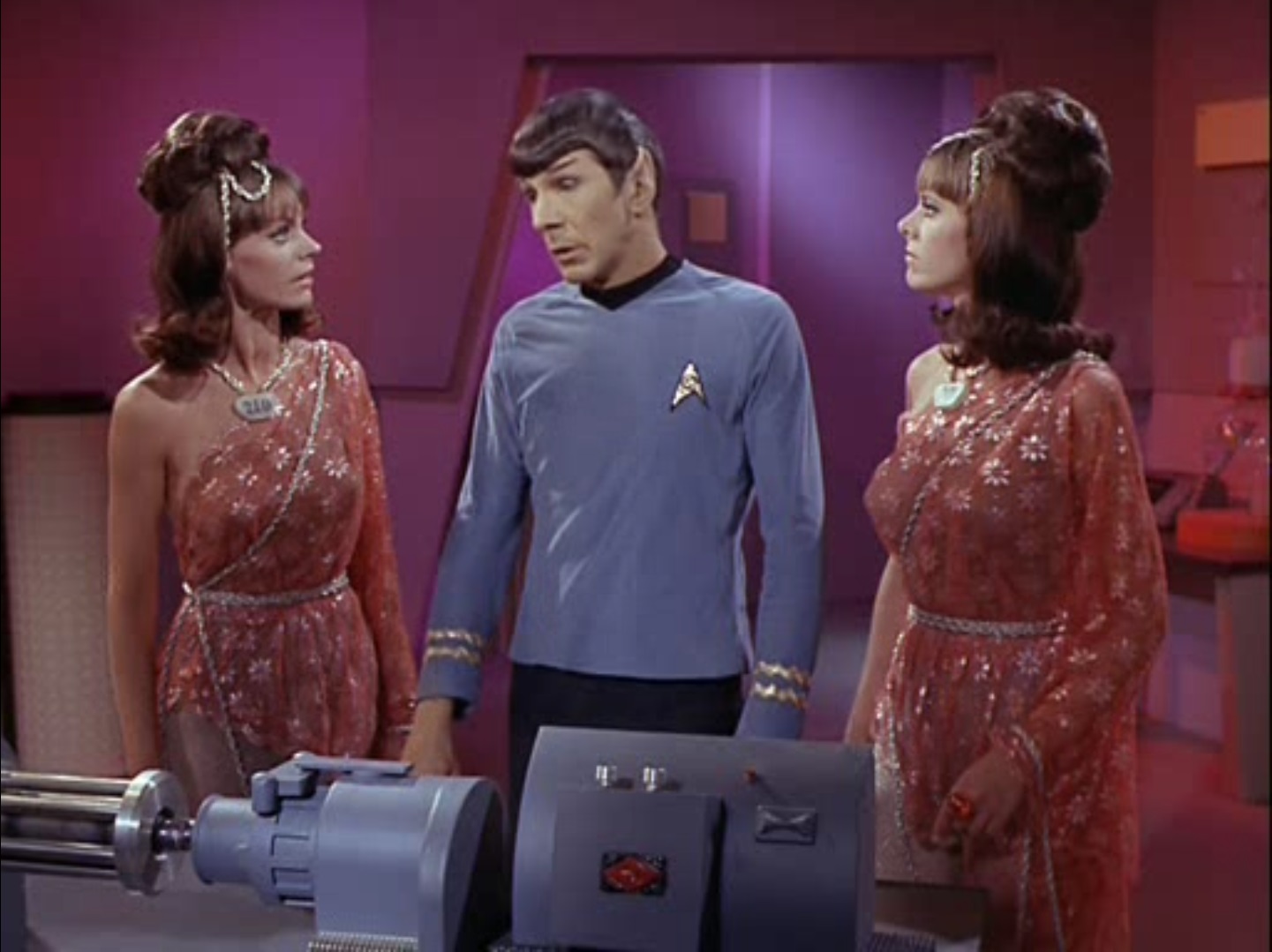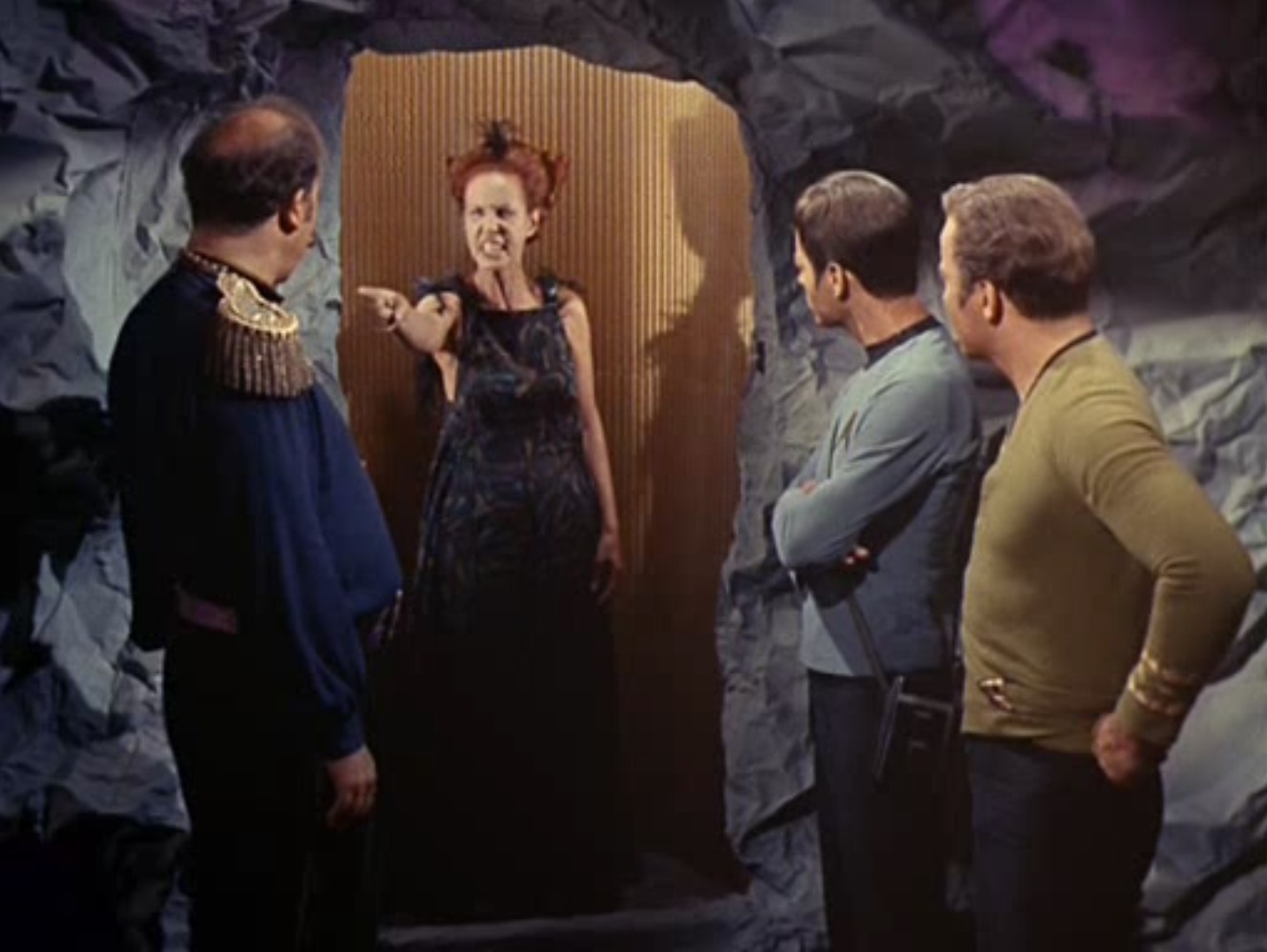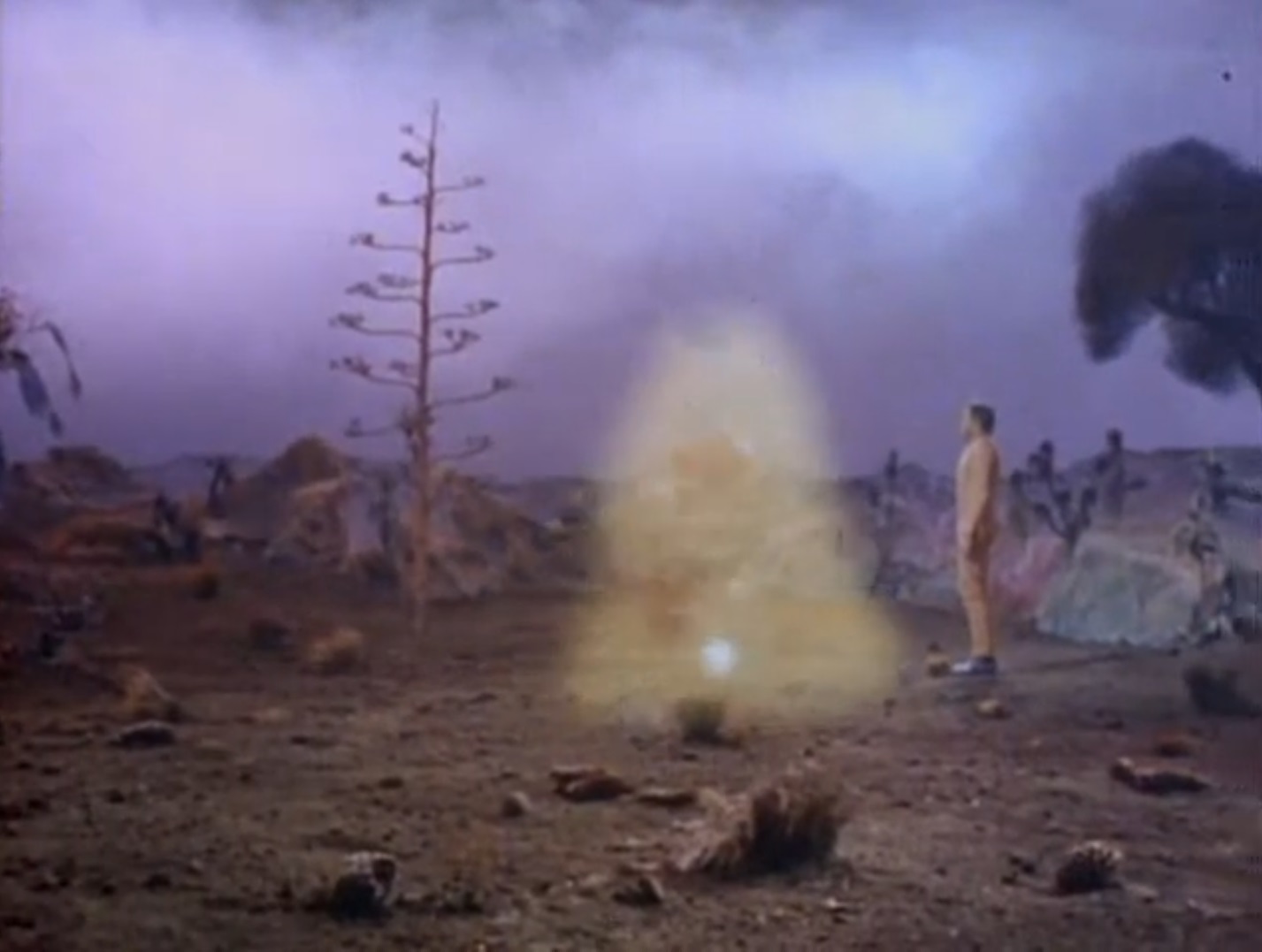The Tholian Threads

by Amber Dubin
This is the episode that fully cemented season 3 in my mind as the highest quality season so far. The special effects were impressive, the costumes were simply spiffy and the pacing and audio were smooth and well-balanced. My only frustration is that it lacked one major connecting thread in the plot, which left it with inconsistencies great enough to turn this otherwise seamless Tholian web into a loose and fraying net.
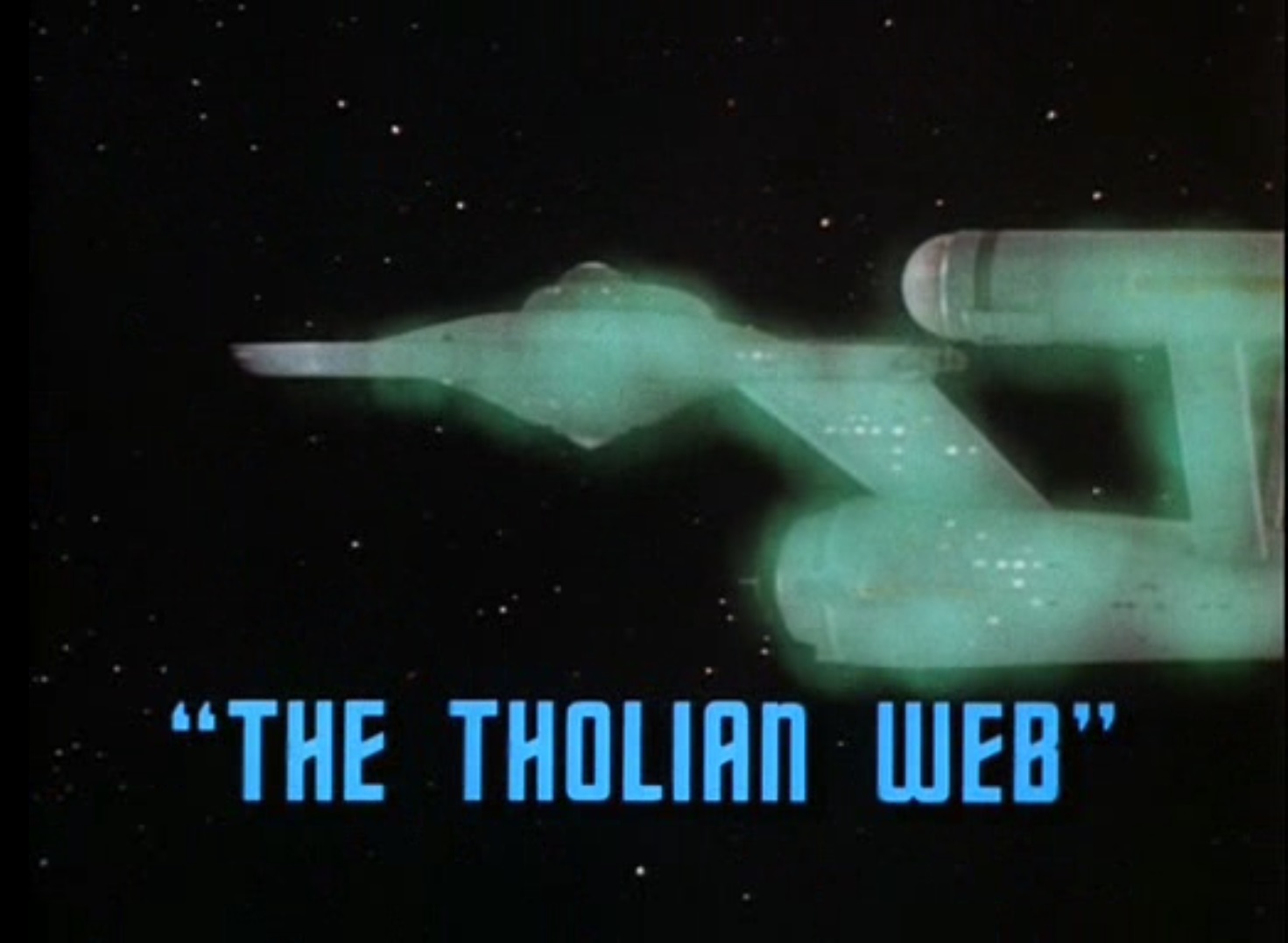
In a masterful opener, we are dropped in the thick of the action from the very beginning, with the crew staring in concern at all the viewscreens, as they are informed that they have entered a region of space "that appears to be breaking apart." I would have loved an explanation as to what readings led Spock to that conclusion, but everyone else seems to take Spock’s assessment with no further elaboration. Their attention is swiftly caught by the appearance of a marooned Federation Starship, one that Captain Kirk identifies on sight as the U.S.S. Defiant. Wasting no time, he rushes to beam onto it with nearly all the highest ranking officers (you’d think he’d learn that effectively decapitating the chain of command before even assessing the nature of the fate that befell an adrift starship is something he should be a bit more cautious about doing, but it seems he prefers learning the hard way yet again). When Kirk, Spock, McCoy and Chekov beam over to the other starship, we see that they have at least learned to take the small precaution of contamination reduction suits this time.

But they don't decontaminate them when they come back to the Enterprise—well, perhaps that's part of the transporter beaming now.
In a sequence of events that should surprise no one at this point, the danger that annihilated the Defiant's crew begins to affect the away team right away. Just as we saw just two weeks ago in “Day of the Dove,” Chekov starts being influenced by a violent murderous madness, and just as the ensign did in “The Naked Time,” he tells no one of his symptoms before bringing a contagion back to the ship with him. Meanwhile in the Defiant’s sickbay, Dr. McCoy makes an immediate and even more disturbing observation when crewmen and objects on the ship phase out of existence as he tries to touch them. Thankfully, Kirk at least treats this threat with the appropriate level of alarm, and immediately orders a retreat to the Enterprise, but it appears to be too late, as whatever forces seem to be affecting the dissolution of the Defiant cause the ship to disappear while the captain is separated from the away team, mid beaming sequence.

The chicken-soup dispenser has become a tricorder device.
The focus now shifts to the delicate dance of keeping the ship in close enough proximity to the Defiant to make another attempt at retrieving the captain while managing to keep the ship in one piece as it withstands the conditions of this volatile section of space. Confusingly, Spock attempts to explain what's happening with vague multiphasic pseudo-science. He says the computer can calculate the pattern in which our universe and the Defiant's overlap with enough regularity that he speculates that the defunct ship will reappear in two hours. Here, he muddies the waters by throwing in noncommittal statements like “the dimensions are totally dissimilar and any use of power disturbs it,” that made me so frustrated with his vagueness that I agreed with Chekov's violent outburst that interrupted it.

"The science in this episode is too confusing!"
The writers decide here that the episode needs even more tension, choosing this moment for the Tholians to zoom into view. Seeking, too late, to guard this unstable portion of space, an alien ship containing beings calling themselves the Tholians hails the Enterprise demanding an explanation for their trespassing and requesting they leave the area immediately. Spock negotiates the calculated amount of time he requires to interact with the Defiant again. When Spock’s calculations prove erroneous, the Tholians swiftly open fire on the Enterprise, feeling as if they were maliciously deceived. Following a brief fire-fight, the Enterprise and the Tholians end up disabling each other, and the Tholians retreat and enact a new strategy to defeat the Enterprise, gathering reinforcements and using several ships to slowly build a web of energy beams.
As if there wasn't enough going on with this intergalactic battle, at the same time, McCoy is engaged in a battle of his own against the interphasic space madness affecting Chekov and the crew. He sets about the monumental task of medically creating an internal shield to barely comprehensible degradative forces, much as we've seen him do in “Miri” and “The Deadly Years.”

"Physician, heal thyself!"
Spock takes this lull in the immediate external danger to officially declare Captain Kirk dead, and he holds a brief, ship-wide funeral service for him. Dr. McCoy drags Spock very reluctantly to an audience with Kirk’s recorded Will and rather unnecessarily takes an opportunity to try to bully, insult, and squeeze an emotional reaction out of Spock. It seems as if this is another one of their typical disputes, but when Kirk’s voice rings out through his tapes, counseling them to stop bickering, it feels as if he’s reaching out from beyond the grave to bring home the gravity of the situation they are in. McCoy immediately apologizes, noting, "It hurts, doesn't it?" In the tense silence where Spock replies softly "What would you have me say, Doctor?" The scene is suddenly imbued with a surprisingly beautiful tenderness that only the shared grief that the loss of a captain and dear, true friend could elicit.

"I can't leave you two alone for five minutes!"
In yet another tonal shift, we find that it's Uhura who helps solve the mystery of their still interdimensionally traveling Captain, as she is first to see his “shadow” phasing in her mirror. One by one, the crew begins sharing in what Uhura had thought to be her own personal hallucination, and they realize Kirk is still alive on a plane of existence that is erratically phasing with ours. Here, the plot seems to completely unravel for me. Apparently a phaser beam punched a hole through the dimensional veil and Kirk got through and somehow also another hole is about to open in the Tholian Web that the Enterprise can slip through while also scooping up Captain Kirk in one fluid movement. Also McCoy discovers the cure for the rabid space sickness (which, truly, why does that matter if they are all about to leave this space in 20 minutes?) and Scotty takes it to his quarters to drink it down like it’s a cocktail mixer rather than an anti-interdimensional-radiation medicine.

"Subtle, yet bold!"
The rest of the episode rushes to a “just because” conclusion, only necessary because they had loaded the story up too much in the beginning. If the SFnal concepts had been more simplistic like “colliding space eddies,” and they hadn’t re-used the space madness subplot so soon, or even if they had taken another moment to acknowledge how emotionally compassionate it was of Spock to make time for a memorial service in the midst of a crisis out of deference to his human subordinates, the episode could have come to a more settled conclusion. Instead, the final scenes collide and coalesce into a sudden messy slop.

The Enterprise escapes the Tholian web 'with a mighty leap.'
In total, the quality of this episode's elements was excellent, but could have stood to benefit from a couple more minutes of editing. Maybe a few more threads woven into web of this plot would have been enough to ensnare my full endorsement of it
4 stars.
Tangled up in Interspace

by Trini Stewart
“The Tholian Web” completely enveloped me in its tense atmosphere this week, largely because I had to watch helplessly as my favorite character, our dearly beloved Spock, faced nearly insurmountable challenges as captain. Spock had to defuse so many high-pressure situations simultaneously that were overwhelming just to imagine, and each aspect of Kirk’s complicated rescue was painfully resolved on the thinnest of ice (to no fault of Spock’s careful guidance).
Other than the strain of having to hinge everyone’s lives on multiple close calls, perhaps the most problematic facet of Spock’s predicament was McCoy’s aggressive response to Spock’s leadership. Acting as a foil to Spock’s calm and focused responses, McCoy persistently questioned and blamed their dire straits on Spock, who had to spend precious time defending his decisions as he urged that they press on. I’ll be the first to admit that, if it were anyone else besides Spock in charge of weighing the risks of Kirk’s rescue, I too would insist that we save the crew while the ship could still leave.

Spock—the best man for the job.
Still, I couldn’t tell if McCoy was just completely distraught by Kirk’s being lost, or if he was influenced by the interspace deterioration to some degree, but I was hurt to see Spock at odds with a partner he can usually trust when he needed him most. My bias will ultimately lie with Spock’s reliability to make the best decision available in any given situation, and I wish that despite the intense circumstances, McCoy had at least conceded to work together with Spock once the ship was down. It was a pretty low blow to assume Spock meant to endanger everyone to secure his captain status, especially after Spock explained his reasoning perfectly.
Thankfully for everyone, Kirk had predicted exactly how the two officers would interact, and he gave them just the sobering insight they needed to cooperate peacefully. I loved that Spock was reminded that McCoy was there to help when matters couldn’t be resolved by his best judgment alone. It was equally sweet (and satisfying) to see Kirk remind McCoy that Spock could make human mistakes too, right after McCoy made a rude remark about Spock’s Vulcan half.
All in all, I loved this entire episode with its suspenseful atmosphere, satisfying characterization, and well-earned resolution. I can only imagine how long-time fans must have enjoyed this episode knowing the characters’ history with one another!
4.5 stars.
Our Little Vulcan’s Growing Up

by Andrea Castaneda
It has been a while since I've caught an episode of Star Trek. In fact, the last episode I watched was “Amok Time”, in which we saw a glimpse of Mr. Spock’s vulnerable side. So I'm glad the show I finally found time for was “The Tholian Web”, featuring our favorite Vulcan in a leadership role. I was happy to see another glimpse of this stoic character. And indeed, compared to how he was in season one (which I got to see fairly regularly), we’ve seen a lot of character growth in how he leads a mission and communicates with his crew.
We first saw Spock’s role as a leader in season one’s “Galileo Seven”. In it, he and other crew members were sent to scout a newly discovered planet. Through twists of fate, they are left stranded, alone, and facing a hostile native species.
When one crew member dies, Spock insists they spare no time to respect their fallen comrade, focusing on finding a way home. It’s logical to him, but it sparks ire amongst the crew members, thus sowing seeds of discontent. As they search for a way back, the crew continues to be uncooperative and critical of his orders, save for Scotty. Here, it’s Spock’s lack of understanding human emotion that jeopardizes their mission. Despite the “illogical” nature of the situation, his crew members want their grief respected. And while we, the audience, understand Spock does what he thinks is best, one can understand why the crew sees him as “cold”.
By season three, he seems to have learned from this experience. In “The Tholian Web”, while he remains calm and collected when faced with Kirk's death, he chooses to spend a moment to hold a brief but effective memorial service. It is done very much in Spock's way, but it shows how the Vulcan first officer is able to empathize with his crew. And the gesture pays off. Despite one crewmember going mad during the service, it seems to solidify Spock's position as new leader. The members of the Enterprise— save for McCoy– respect his orders, call him "Captain", and do not question him, showing how much he’s earned their trust.

Spock, having learned from experience, foregoes the traditional comedy monologue.
Another stark contrast is how his attitude shifts from “saving the village above all” to “no man left behind”. In “The Galileo Seven”, after scrimping together repairs to get their shuttle into orbit, Spock states that the crew should go on without him if he is compromised. And inevitably, Spock is incapacitated right as the shuttle lifts off. The surviving crew members rescue him despite his insistence to go on. It’s a heroic act, but one that costs them their window of opportunity to leave. Because of that, he scolds them for it and they respond with frustration. (But worry not; they make it to the Enterprise in the end.)
In “The Tholian Web”, Spock seems to take the opposite approach. When faced with the prospect of losing Kirk, he risks the Enterprise’s escape window for the chance to save Kirk. I should note that one can interpret this as Spock making a special exception for their captain. But I choose to believe Kirk’s ideals have rubbed off on him. Right on cue, he receives much criticism from McCoy, who is being particularly prickly even for him. Their banter serves as a good vocalization for what the audience might be thinking. But it was interesting seeing the logical Vulcan take the riskier approach. I will say, Spock’s choice does endanger the rest of the crew–the very thing he was trying to avoid in “Galileo Seven”. But once again, I think it shows how much Kirk has influenced him.
In the end, the gamble pays off. Kirk is rescued, the Enterprise escapes, and everyone goes on to explore another day.
Indeed, this episode can be interpreted as a better evolved version of the “Galileo Seven”. The stakes were higher, there were more plot elements in play, and the alien species they faced was more threatening. The story kept me guessing and didn’t have predictable moments (despite the ending being a tad bit convenient.) It was a delight to see how Spock not only survived but thrived as a leader. I very much look forward to seeing how Spock will continue to develop, both as a leader and as a true friend to the Enterprise.
Five stars
Behind the scenes

by Gideon Marcus
Back in the first season, the Enterprise was a living, breathing entity with 430 varied souls on board. Over the course of the show, the focus has shifted sharply onto The Big Three (viz. last episode, in which the starship might as well have been the personal vehicle of Kirk, Spock, and McCoy a la Peter's woody in The Mod Squad).
This week, we saw a bit of the old Enterprise, the kind we haven't seen since "Balance of Terror", really. There were some 30-40 people at Kirk's (premature) funeral, lots of people in engineering, McCoy's lab, on the bridge. There were enough people that department heads could, rightly, not spend all of their moments doing hands-on work. Uhura got to take a few minutes off, which we haven't seen since her impromptu concert with Spock in "The Conscience of the King" (the enforced hiatus in "The Changeling" doesn't count).
Interestingly, this actually turned Lorelei off a bit, so used is she to the more-than-one-braid-on-their-sleeves stars and co-stars doing all the work. But I'll never criticize a show for getting things right. Now if they can just get some trained Marines to beam ashore instead of the ship's senior complement…

A Tholian spins its web. Note: not to scale (this is supposed to be "out of phaser range".)
Anyway, I loved this episode, from beginning to end. It took a bunch of somewhat familiar elements, mixed them with some new ones, and tied them all together with the thread of Spock's first real command. It reminded me a bit of a second-season Burke's Law episode where Captain Amos Burke goes on vacation, and the rest of his team have to solve a case without him. Kirk's absence gives "The Tholian Web" room to breathe (even as he suffocates). This enhances the poignancy of his taped final orders to Spock and Bones.
I loved getting to see Sulu cradle Chekov's head after the navigator goes mad (they do love to hear him scream). I loved seeing Uhura mourn for the Captain, seeing her in her quarters! And we see Spock's quarters again, too. Scotty, McCoy, and Spock enjoy a drink together before the engineer takes the bottle of cure away to share it with someone else—probably Kevin Riley.
And I always love getting to see another starship, even if they are inevitably in distress. Somehow, each has its own unique flavor, even though they always use the same sets. Finally, I loved meeting the Tholians, an attempt at a true alien race.

In Communist Red, no less…
Never mind the brilliant special effects, the superlative acting, the real tension, even knowing Kirk was going to live (as he must, and as we saw in the preview; this was a negative point for Lorelei, too).
Thus, I can give this episode no less than five stars. Frankly, Season 3 has been, so far, my favorite season yet.
[Come join us tonight (November 22nd) for the next thrilling episode of Star Trek! KGJ is broadcasting the show live with commercials and accompanied by trekzine readings at 8pm Eastern and Pacific. You won't want to miss it…]




![[June 27, 1970] Deeper than Amber, more mindless than a Worm… (June Galactoscope: The Third)](https://galacticjourney.org/wp-content/uploads/2025/06/700627covers-672x372.jpg)
![[December 10, 1969] Night Gallery: A Frightening Tableau](https://galacticjourney.org/wp-content/uploads/2024/12/NightGallery-553x372.png)

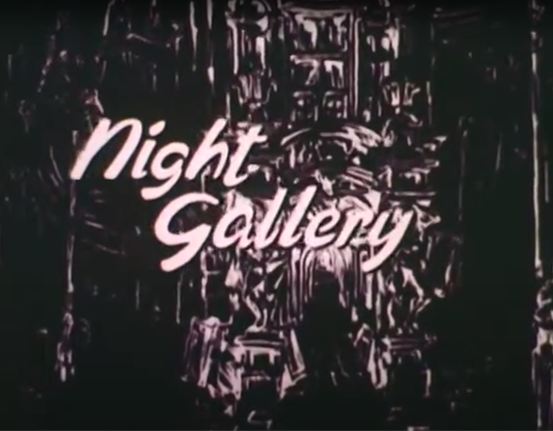
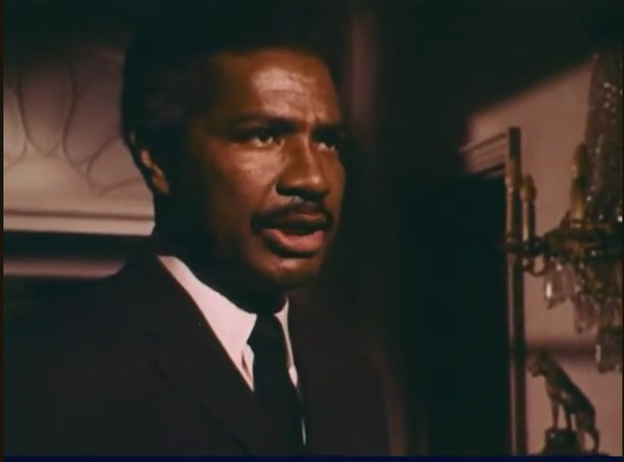
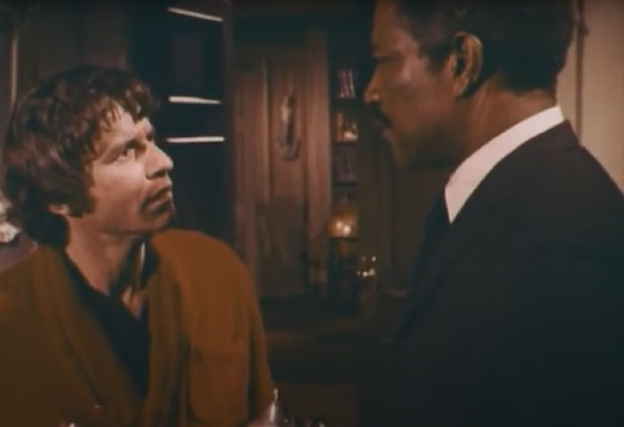
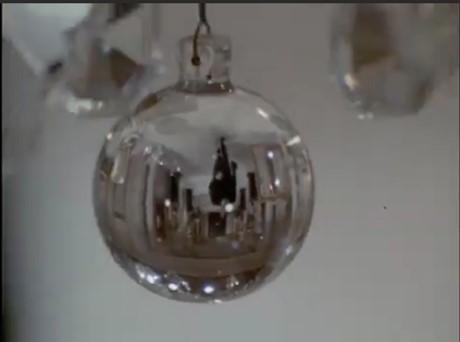
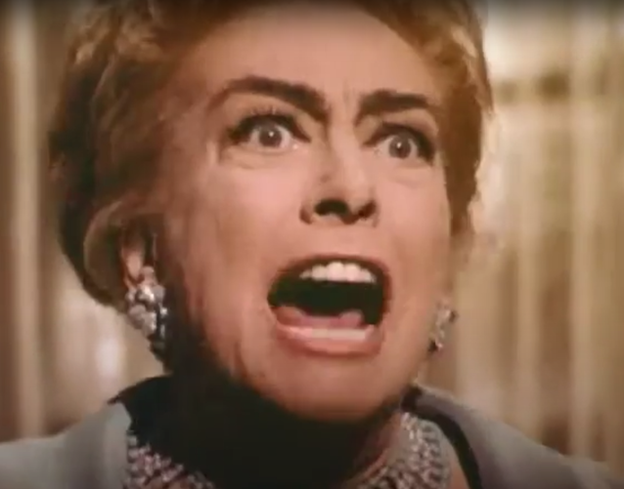
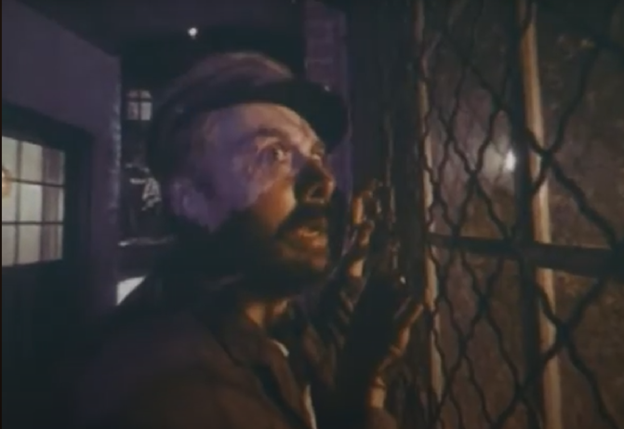
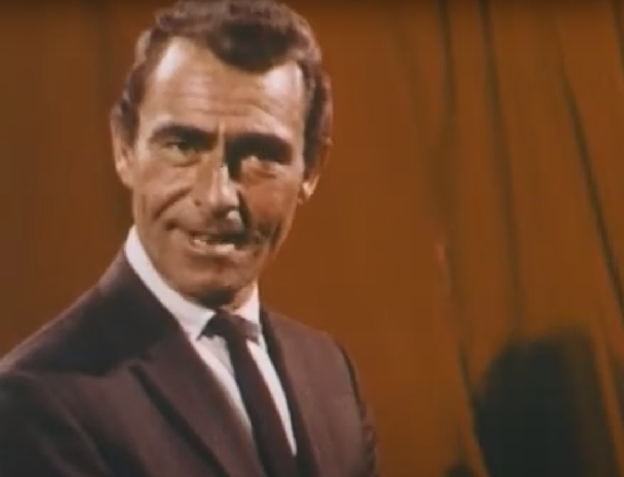


![[February 28, 1969] We Reach (<i>Star Trek</i>: "The Way to Eden")](https://galacticjourney.org/wp-content/uploads/2024/02/690301title-1-672x372.jpg)




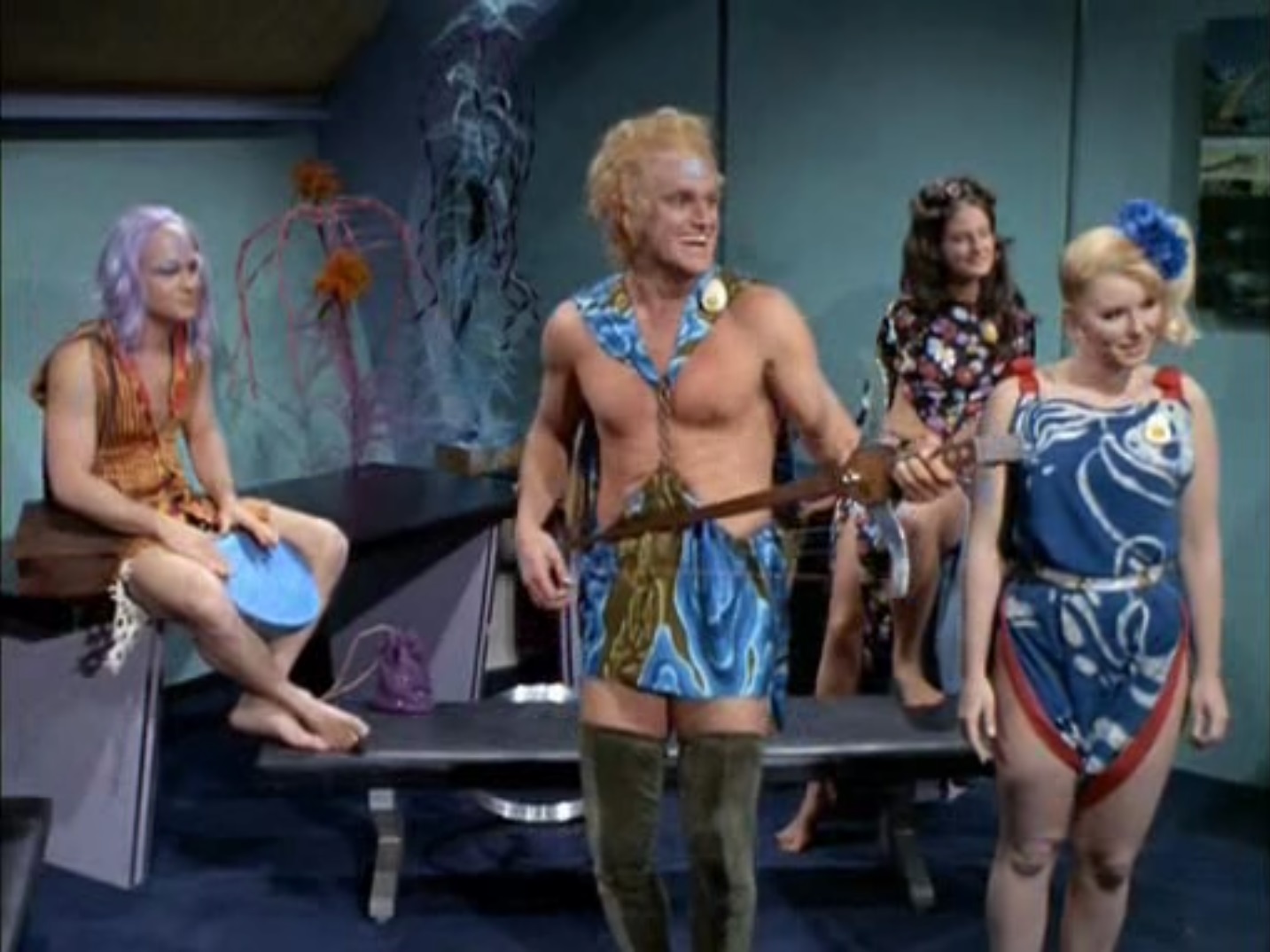
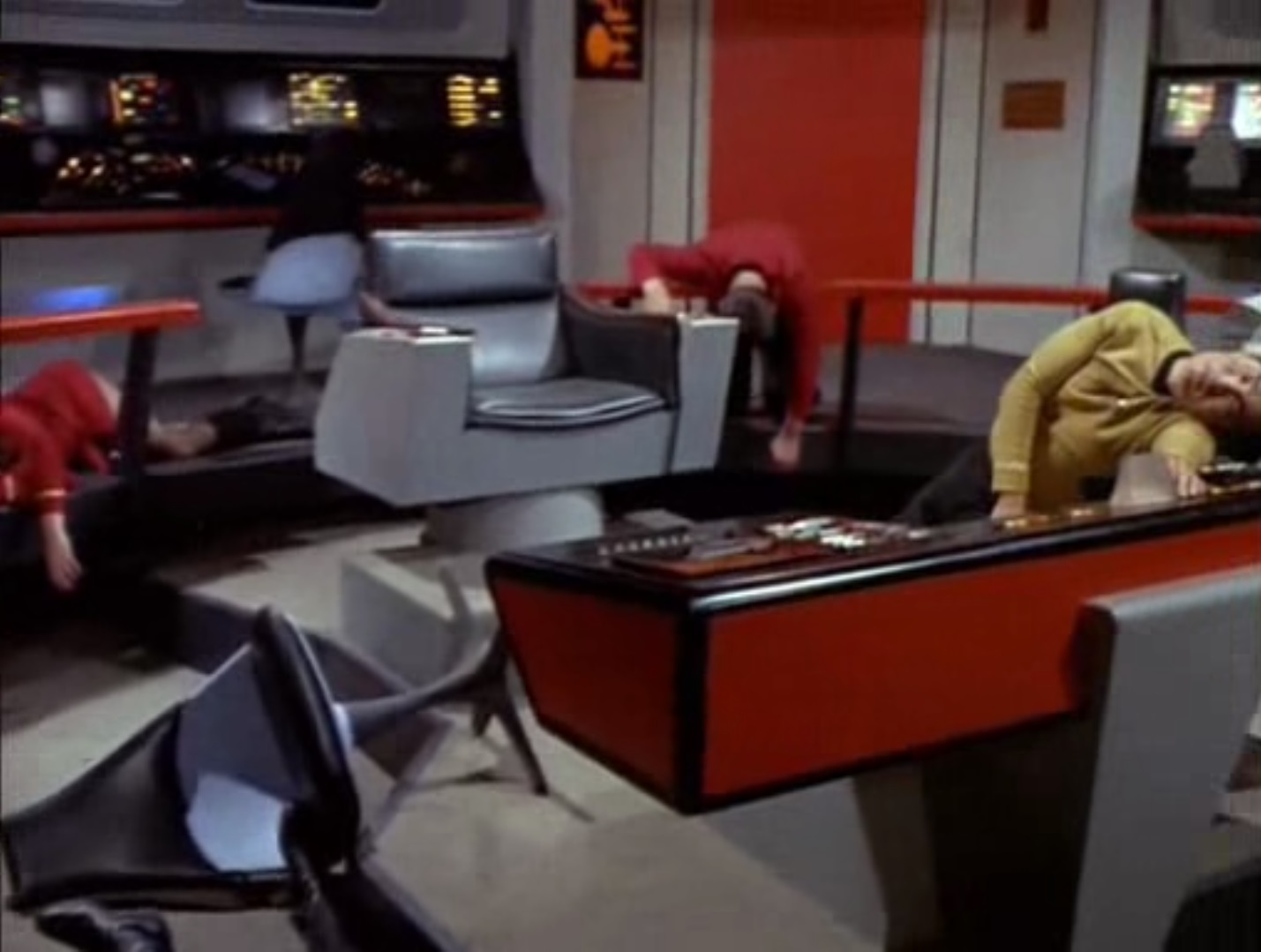

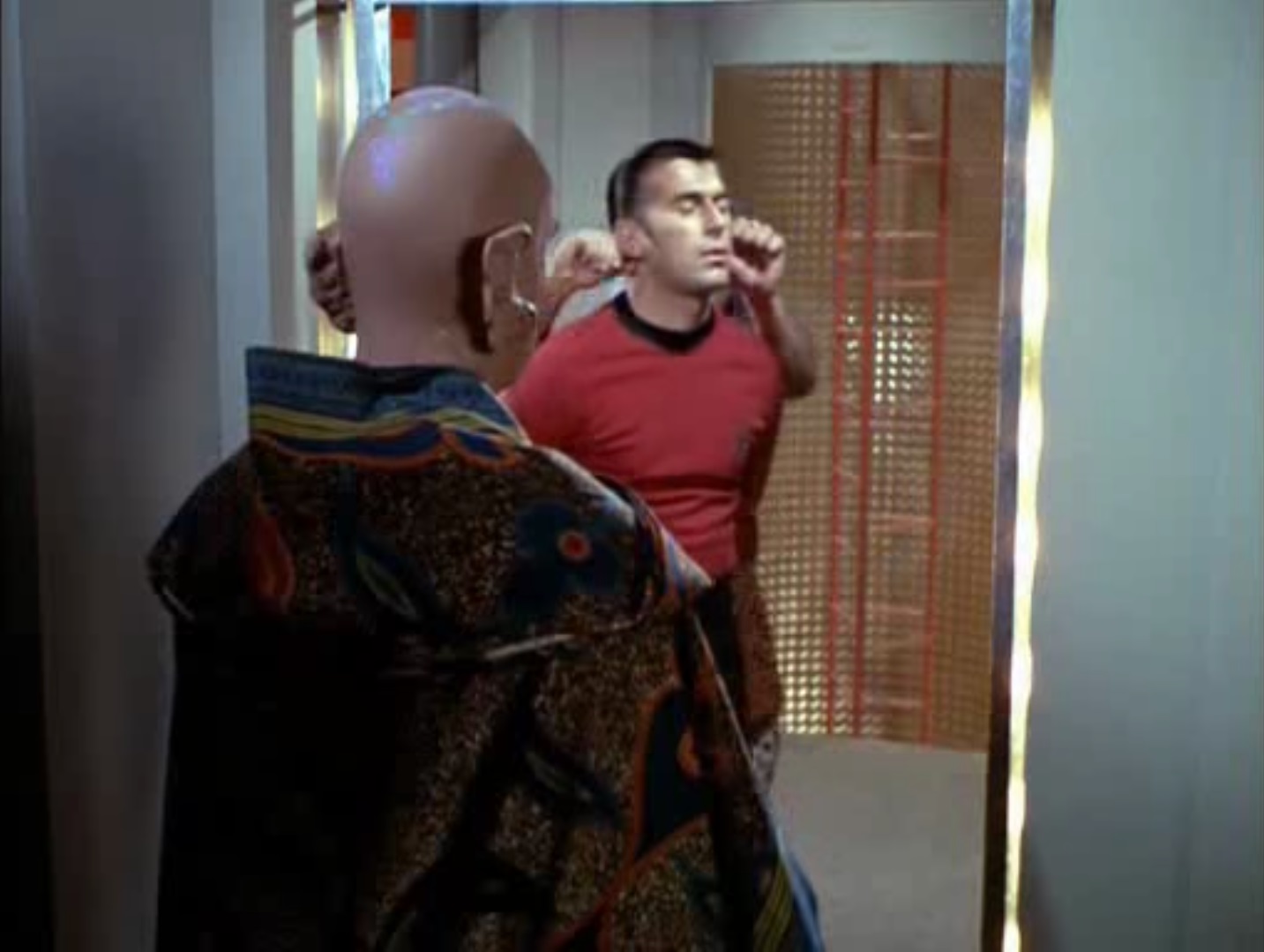

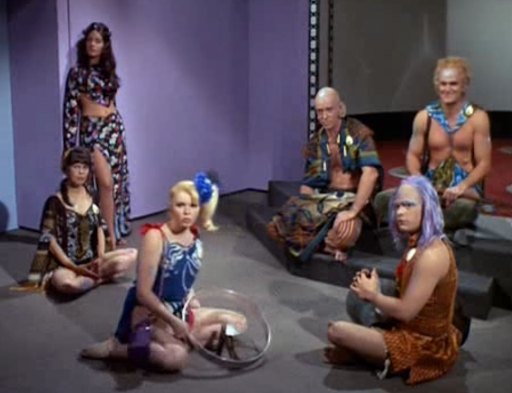





![[Nov. 22, 1968] Bound to thrill (<i>Star Trek</i>: "The Tholian Web")](https://galacticjourney.org/wp-content/uploads/2023/11/681122title-672x372.jpg)















![[November 8, 1968] A Diplomatic Tiger by the Tail ("Day of the Dove")](https://galacticjourney.org/wp-content/uploads/2023/11/681108title-672x372.jpg)















![[June 22, 1968] The Devil, you say (<i>Rosemary's Baby</i>)](https://galacticjourney.org/wp-content/uploads/2023/06/RosemarysBaby-672x372.jpg)








![[April 4, 1968] Time and time again (<i>Star Trek</i>: "Assignment: Earth")](https://galacticjourney.org/wp-content/uploads/2023/04/680404title1-672x372.jpg)













![[Feb. 2, 1968] All creatures great and small (<i>Star Trek</i>: "The Immunity Syndrome")](https://galacticjourney.org/wp-content/uploads/2023/01/680202title-672x372.jpg)








![[December 8, 1967] You're a Big Girl Now (<i>Star Trek</i>: "Friday's Child")](https://galacticjourney.org/wp-content/uploads/2022/12/671208title-672x372.jpg)
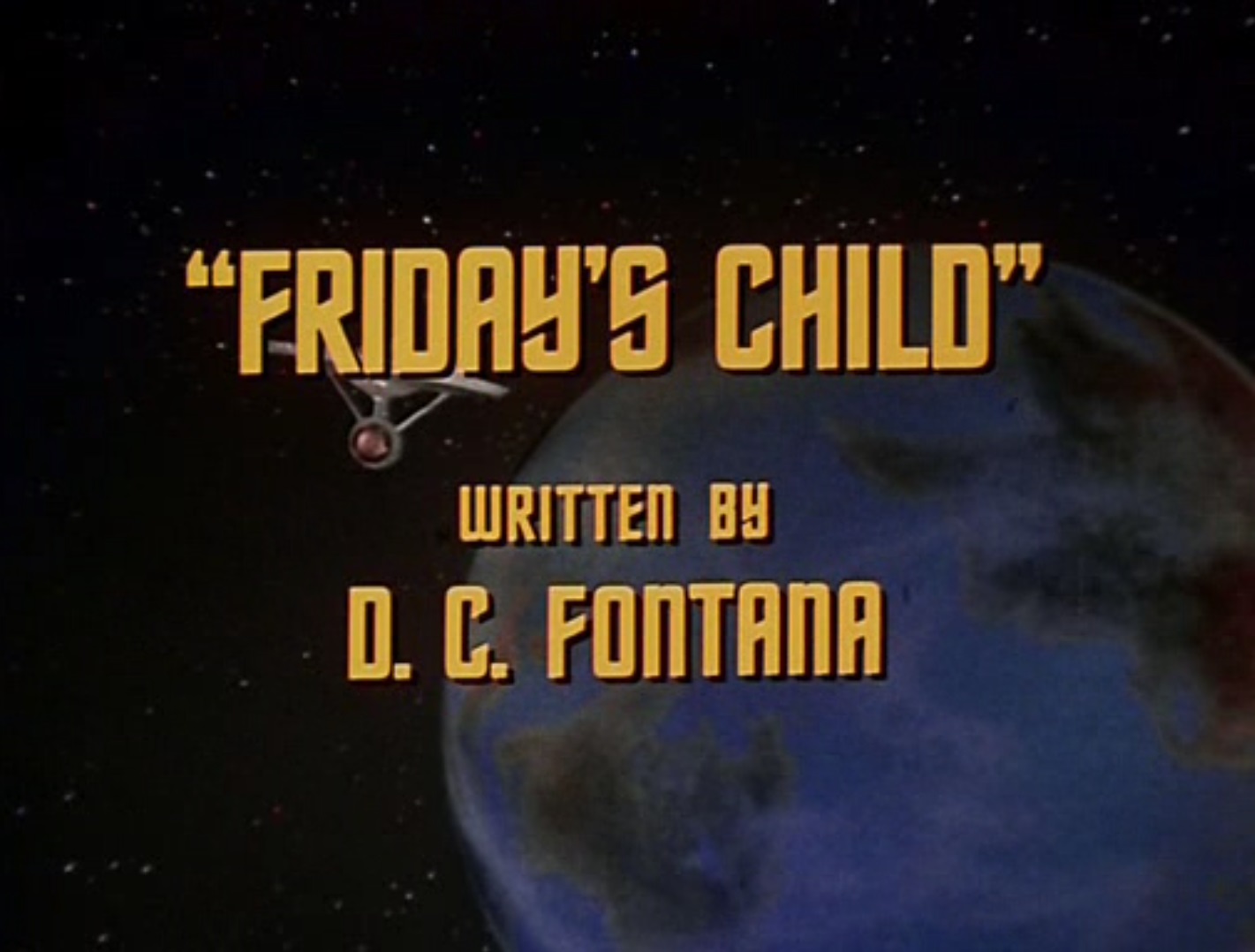


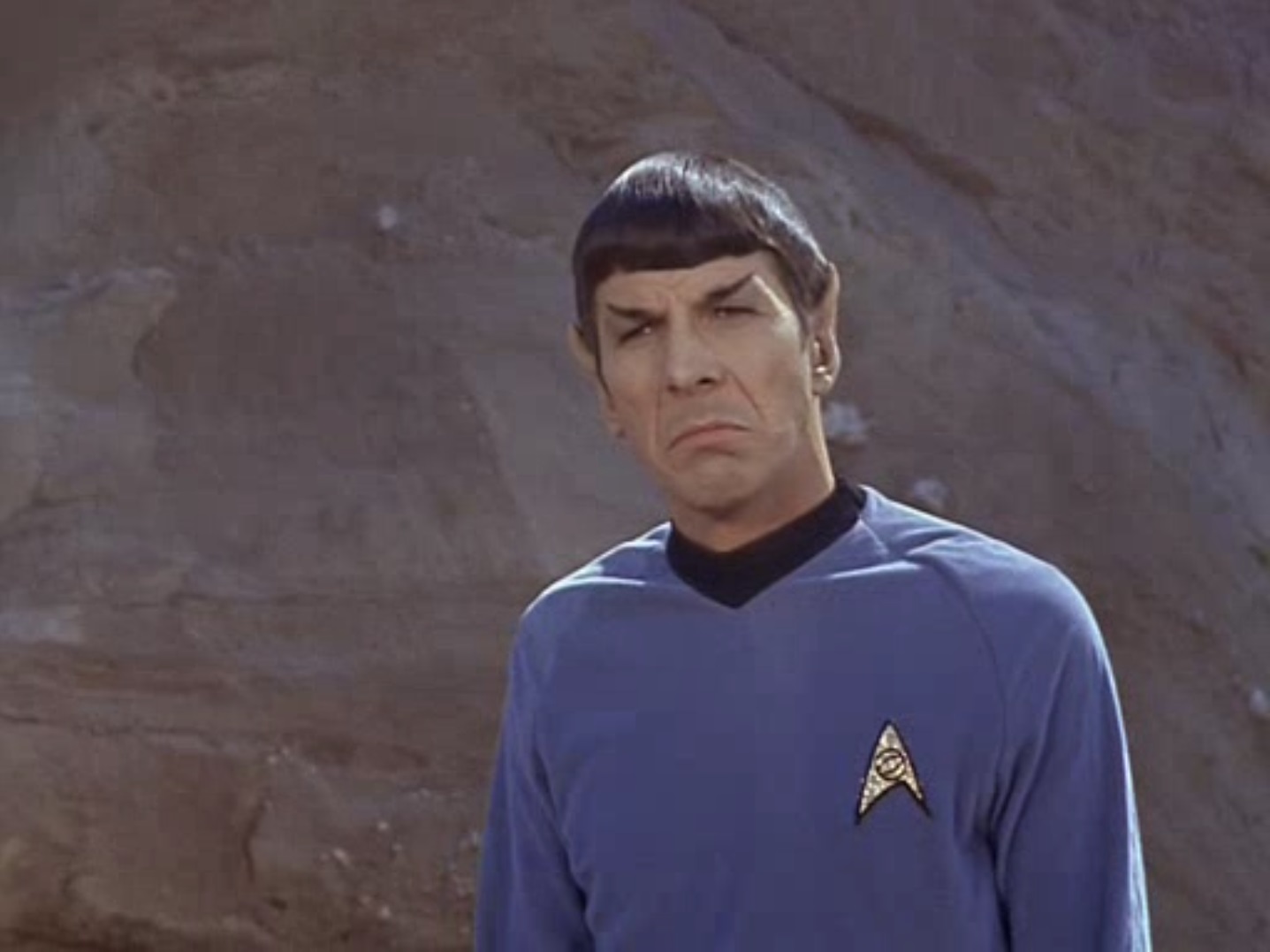
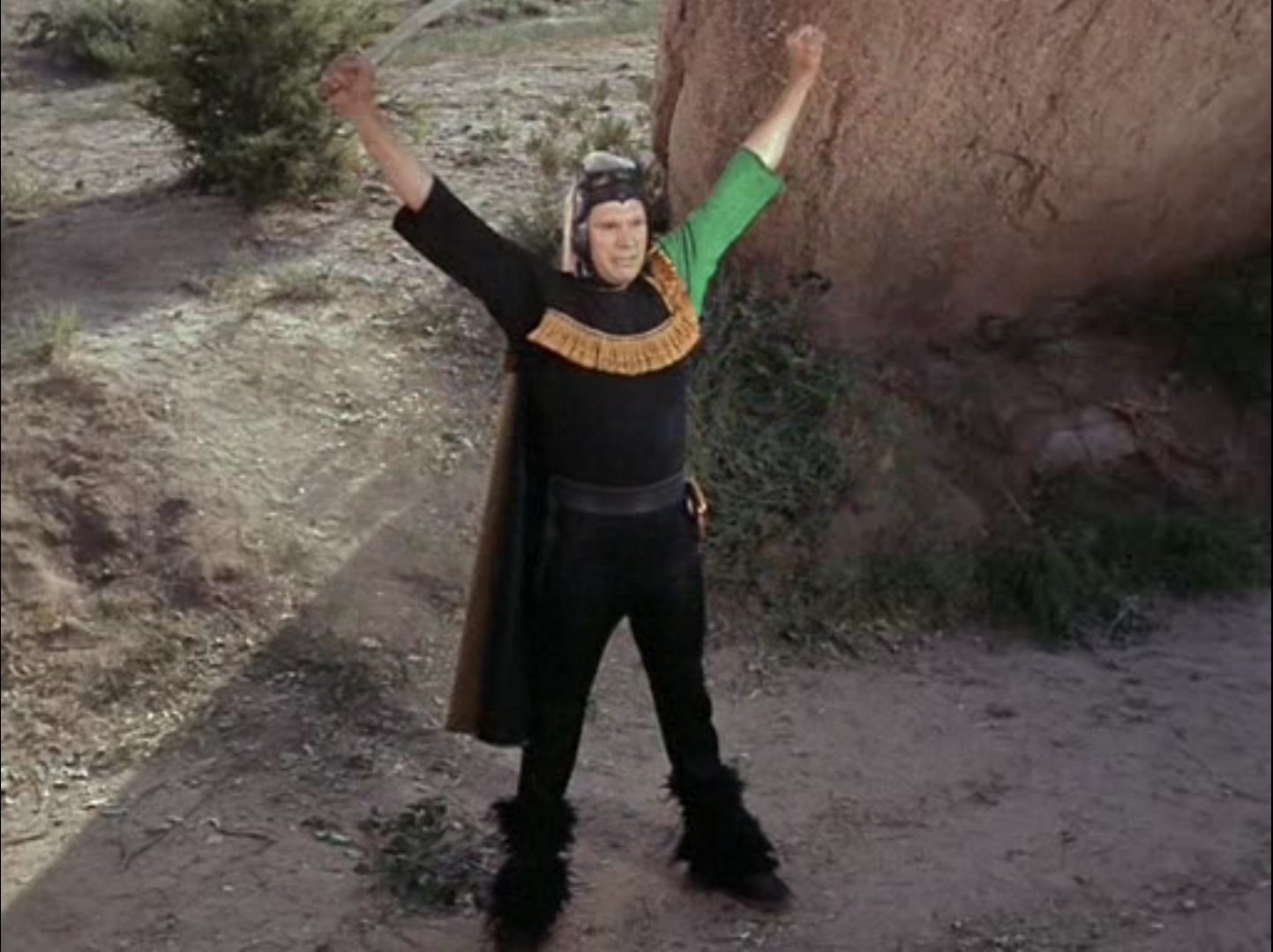

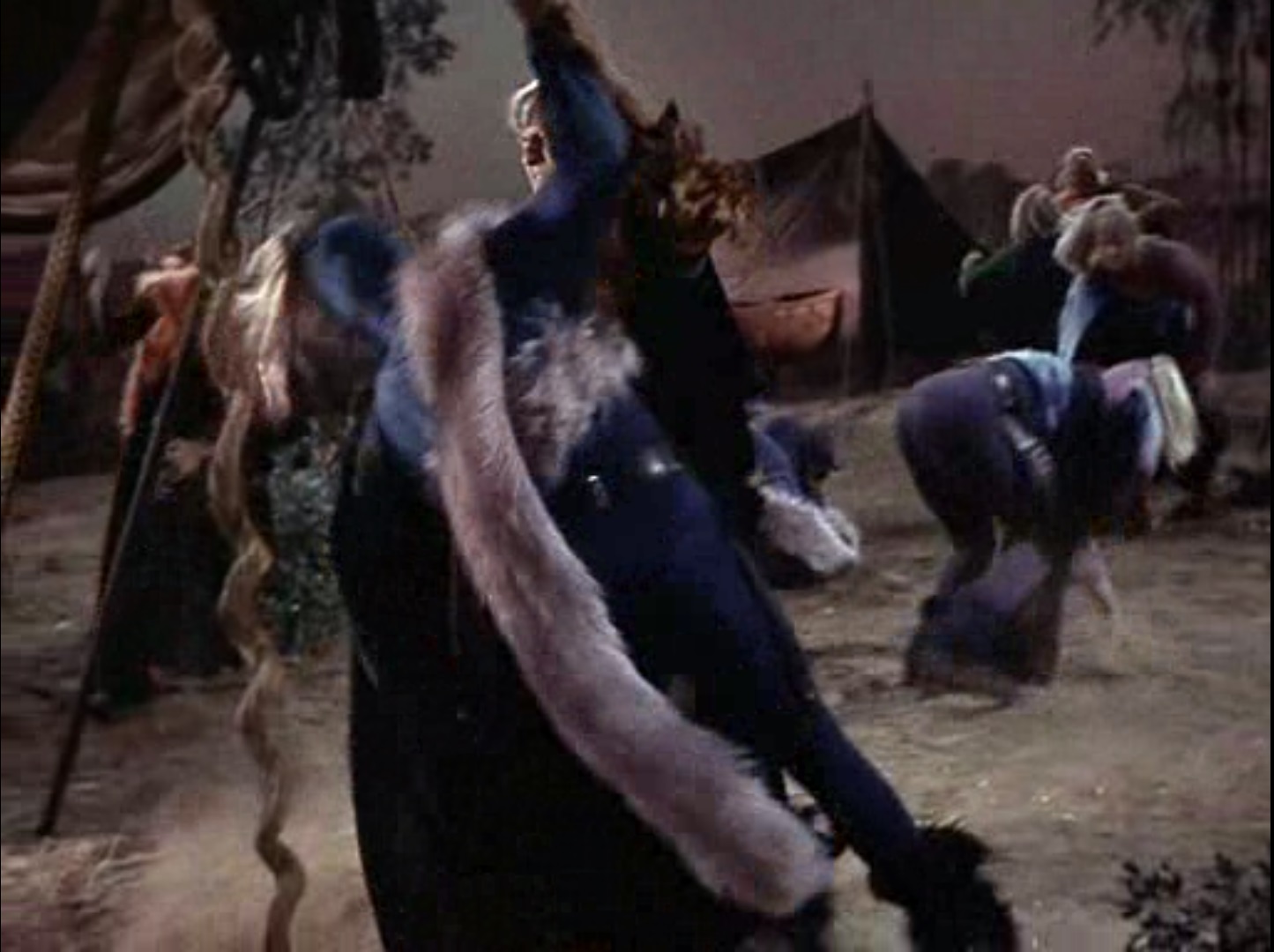
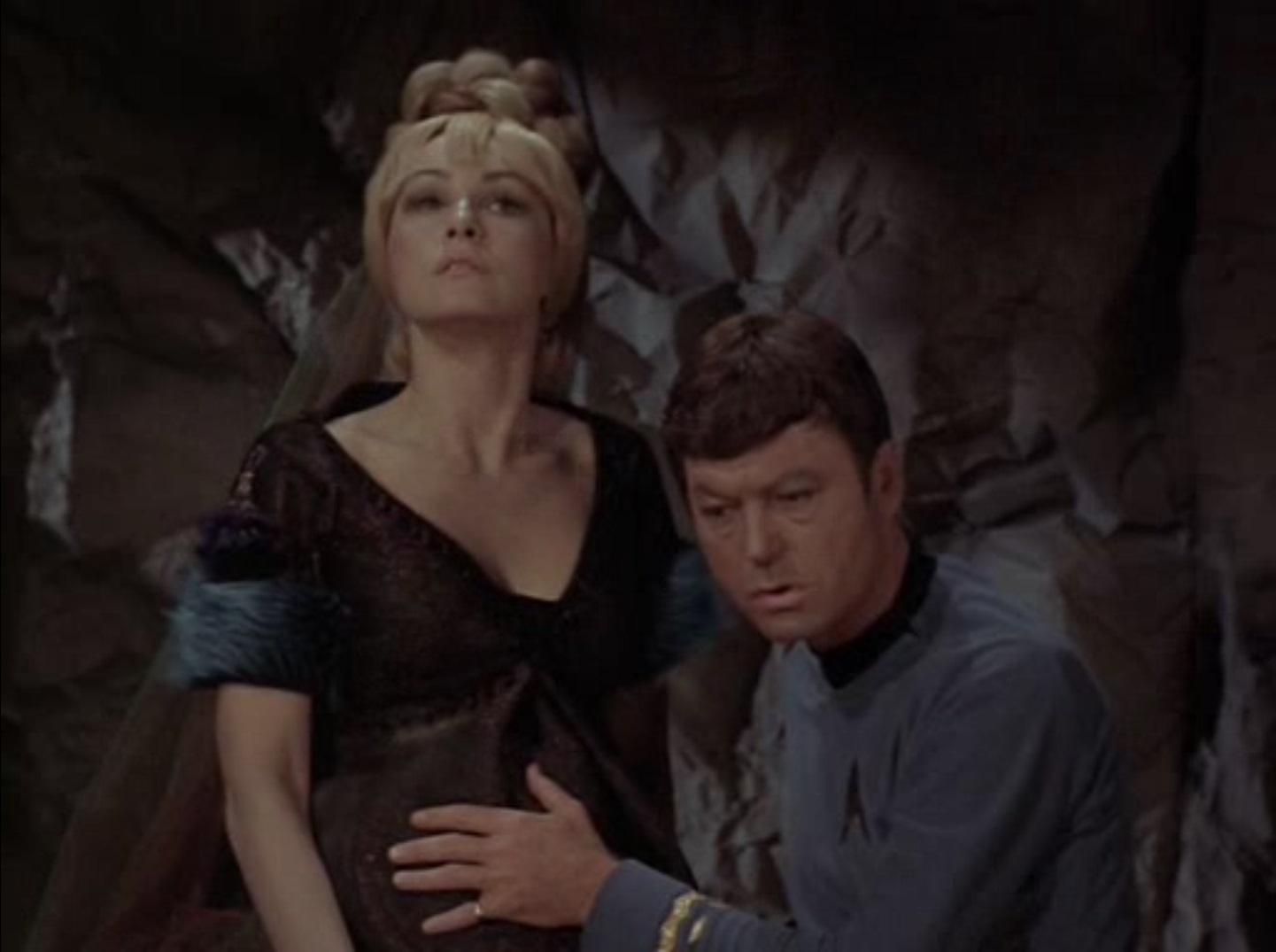

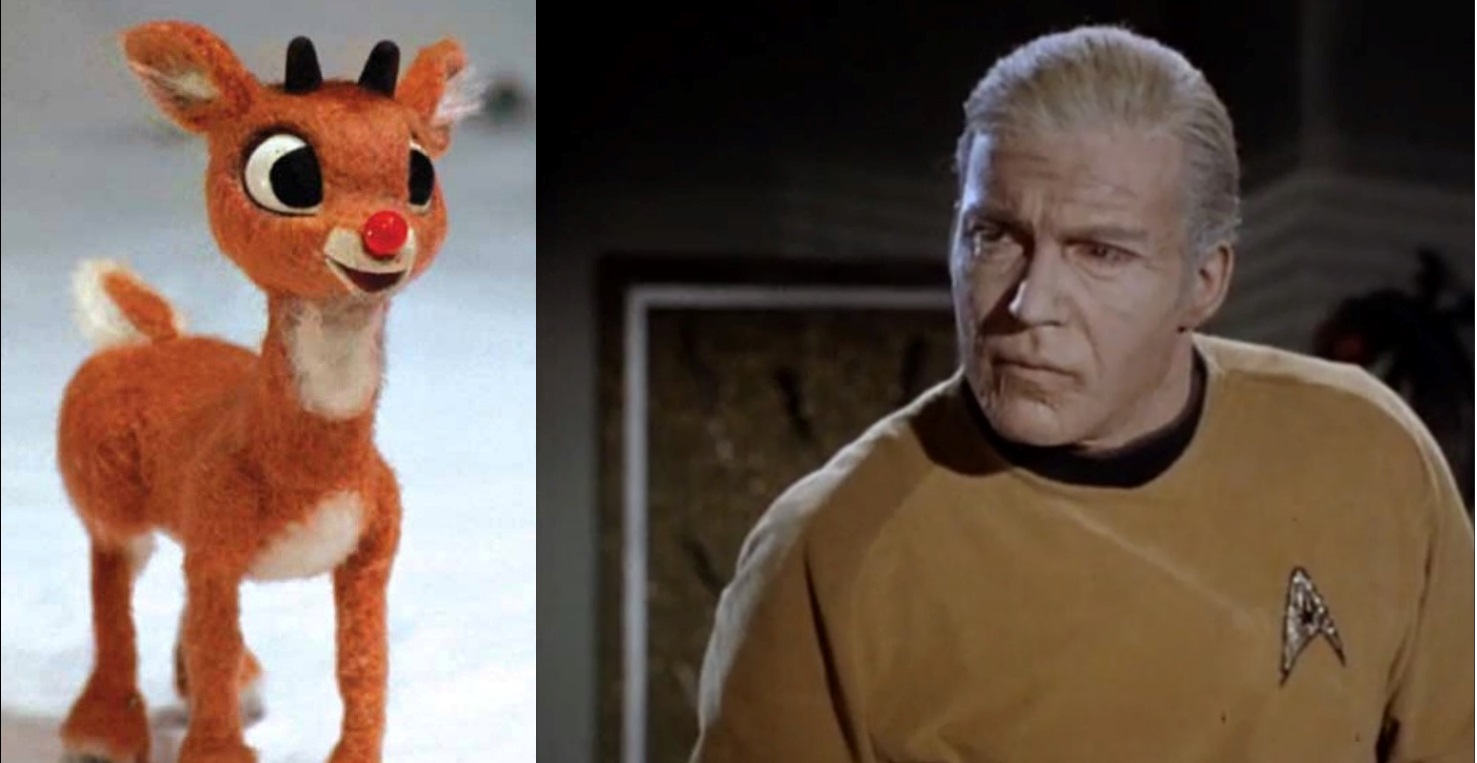
![[November 10, 1967] Mudd in the computer (<i>Star Trek</i>: "I, Mudd")](https://galacticjourney.org/wp-content/uploads/2022/11/671110title-672x372.jpg)
